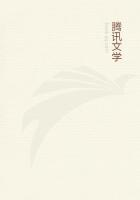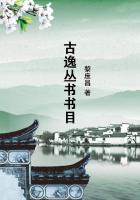Romulus, having buried his brother Remus, together with his two foster-fathers, on the mount Remonia, set to building his city; and sent for men out of Tuscany, who directed him by sacred usages and written rules in all the ceremonies to be observed, as in a religious rite. First, they dug a round trench about that which is now the Comitium, or Court of Assembly, and into it solemnly threw the first-fruits of all things either good by custom or necessary by nature; lastly, every man taking a small piece of earth of the country from whence he came, they all threw in promiscuously together. This trench they call, as they do the heavens, Mundus; making which their centre, they described the city in a circle round it. Then the founder fitted to a plough a brazen ploughshare, and, yoking together a bull and a cow, drove himself a deep line or furrow round the bounds; while the business of those that followed after was to see that whatever earth was thrown up should be turned all inwards towards the city; and not to let any clod lie outside. With this line they described the wall, and called it, by a contraction, Pomoerium, that is, postmurum, after or beside the wall; and where they designed to make a gate, there they took out the share, carried the plough over, and left a space; for which reason they consider the whole wall as holy, except where the gates are; for had they adjudged them also sacred, they could not, without offence to religion, have given free ingress and egress for the necessaries of human life, some of which are in themselves unclean.
As for the day they began to build the city, it is universally agreed to have been the twenty-first of April, and that day the Romans annually keep holy, calling it their country's birthday. At first, they say, they sacrificed no living creature on this day, thinking it fit to preserve the feast of their country's birthday pure and without stain of blood. Yet before ever the city was built, there was a feast of herdsmen and shepherds kept on this day, which went by the name of Palilia. The Roman and Greek months have now little or no agreement; they say, however, the day on which Romulus began to build was quite certainly the thirtieth of the month, at which time there was an eclipse of the sun which they conceived to be that seen by Antimachus, the Teian poet, in the third year of the sixth Olympiad. In the times of Varro the philosopher, a man deeply read in Roman history, lived one Tarrutius, his familiar acquaintance, a good philosopher and mathematician, and one, too, that out of curiosity had studied the way of drawing schemes and tables, and was thought to be a proficient in the art; to him Varro propounded to cast Romulus's nativity, even to the first day and hour, making his deductions from the several events of the man's life which he should be informed of, exactly as in working back a geometrical problem;for it belonged, he said, to the same science both to foretell a man's life by knowing the time of his birth, and also to find out his birth by the knowledge of his life. This task Tarrutius undertook, and first looking into the actions and casualties of the man, together with the time of his life and manner of his death, and then comparing all these remarks together, he very confidently and positively pronounced that Romulus was conceived in his mother's womb the first year of the second Olympiad, the twenty-third day of the month the Aegyptians call Choeac, and the third hour after sunset, at which time there was a total eclipse of the sun; that he was born the twenty-first day of the month Thoth, about sunrising; and that the first stone of Rome was laid by him the ninth day of the month Pharmuthi, between the second and third hour. For the fortunes of cities as well as of men, they think, have their certain periods of time prefixed, which may be collected and foreknown from the position of the stars at their first foundation. But these and the like relations may perhaps not so much take and delight the reader with their novelty and curiosity, as offend him by their extravagance.
The city now being built, Romulus enlisted all that were of age to bear arms into military companies, each company consisting of three thousand footmen and three hundred horse. These companies were called legions, because they were the choicest and most select of the people for fighting men. The rest of the multitude he called the people; an hundred of the most eminent he chose for counsellors; these he styled patricians, and their assembly the senate, which signifies a council of elders. The patricians, some say, were so called because they were the fathers of lawful children; others, because they could give a good account who their own fathers were, which not every one of the rabble that poured into the city at first could do; others, from patronage, their word for protection of inferiors, the origin of which they attribute to Patron, one of those that came over with Evander, who was a great protector and defender of the weak and needy. But perhaps the most probable judgment might be, that Romulus, esteeming it the duty of the chiefest and wealthiest men, with a fatherly care and concern to look after the meaner, and also encouraging the commonalty not to dread or be aggrieved at the honours of their superiors, but to love and respect them, and to think and call them their fathers, might from hence give them the name of patricians.
For at this very time all foreigners give senators the style of lords;but the Romans, making use of a more honourable and less invidious name, call them Patres Conscripti; at first, indeed, simply Patres, but afterwards, more being added, Patres Conscripti. By this more imposing title he distinguished the senate from the populace; and in other ways separated the nobles and the commons, calling them patrons, and these their clients, by which means he created wonderful love and amity betwixt them, productive of great justice in their dealings.















